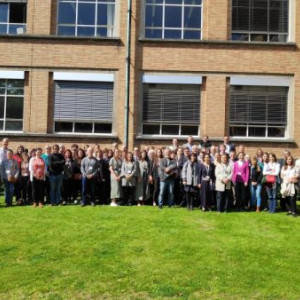 \
&
Contact us
\
&
Contact us
 \
&
Contact us
\
&
Contact us
Partnership website: https://www.waterborne.eu/
The partnership will provide and demonstrate zero-emission solutions for all main ship types and services before 2030, which will enable zero-emission waterborne transport before 2050.
In addition, the partnership will
Contact
Commission services:RTD-CLEAN-WATERBORNE@ec.europa.eu
Partners: Waterborne Technology Platform - Jaap Gebraad, Partnership website
Partnerships group the EC and private and/or public partners, to coordinate and streamline the research & innovation initiatives and funding in some selected key domains.

The Project SeafoodTomorrow is a project that is approved within the call BG-08-2017: Innovative sustainable solutions for improving the safety and dietary properties of seafood.
The three-year SeafoodTomorrow project brings together 34 partners. From Flanders, ILVO takes part in the project.They are responsible for setting up two databases which are the central point of the project to gather all the project data from analysis and assessement. ILVO is also leader of the workpackage dealing with authenticity, traceability and labelling. ILVO is also involved a the workpackage about novel food preparation. And in the managerial part, ILVO is head of the IPC- Intellectual Property Comité.